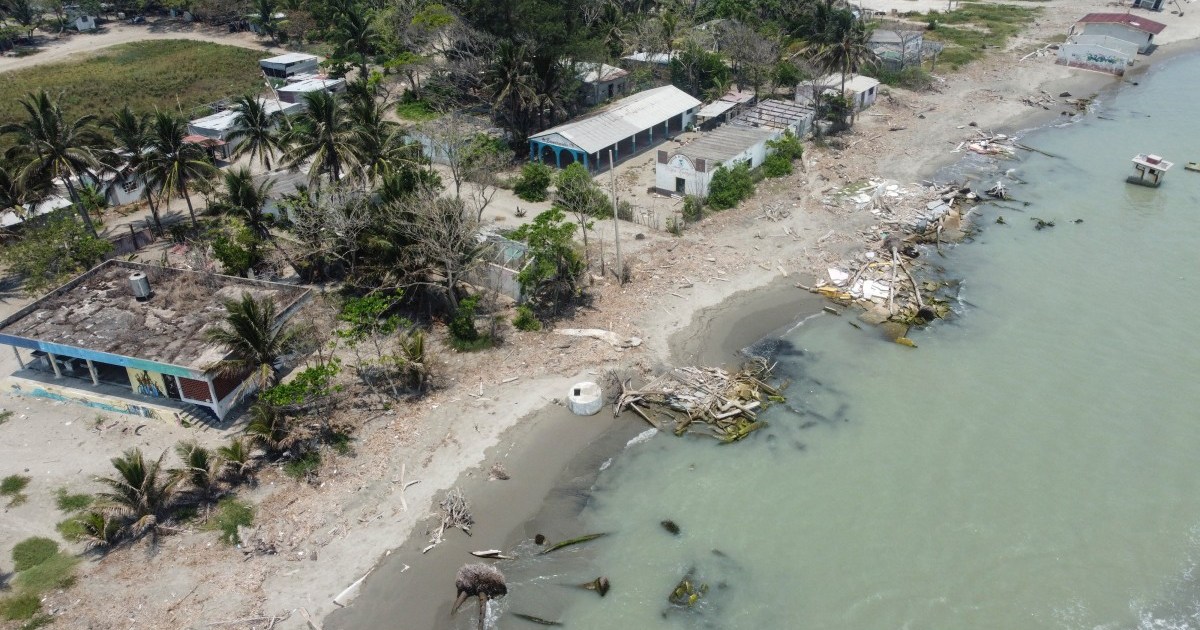Waves wash over abandoned homes in a Mexican village slowly being swallowed by the sea; a symbol of the climate change effects being felt by the major fossil fuel producer.
The school where Adrian Perez used to attend classes in the community of El Bosque in the southern state of Tabasco now stands in ruins.
Each time he passes it going fishing, he is reminded of what has been lost to the sea.
“It’s hard. I studied there and look at what it became,” the 24-year-old said.
“The climate’s destroying us,” he added.
However, it is not only rising sea levels that are hitting Mexico.
This year, heatwaves have sent temperatures soaring in Tabasco and across much of the country, stoking the climate change debate as the country prepares for a June 2 presidential election.
According to environmental group Greenpeace, El Bosque is the first community in Mexico to be officially recognised as displaced by climate change.
In February, the Tabasco state congress approved the relocation of El Bosque.
“We hear about climate change all the time but we never thought that it would come to us,” said 34-year-old Cristy Echeverria, who has lost her home.
According to the World Meteorological Organization, ocean warming as well as the melting of glaciers and ice sheets caused the global sea level to reach its highest point on record last year.
About 700 people once lived in El Bosque, which sits on a small peninsula jutting out into the Gulf of Mexico.
In the waters offshore, rigs extract the oil and gas on which Latin America’s second-largest economy so heavily depends.
Down the coast, the government of outgoing President Andres Manuel Lopez Obrador has built a major new oil refinery in Tabasco.
The facility, sitting in the head of state’s home state, is part of his effort to achieve energy self-sufficiency.
However, Tabasco is also one of the areas of Mexico hit hardest by this year’s heatwaves, with temperatures in the state reaching 40 degrees Celsius (104 degrees Fahrenheit).
Since March, 48 heat-related deaths have been registered across the country, according to the government.
Even Mexico City, whose altitude has traditionally given it a temperate climate, recorded its highest-ever temperature of 34.7C (94.46F) on Saturday.
The heat and below-normal rainfall last year have stirred fears of worsening water shortages.
The average annual availability of water per capita in Mexico has already fallen by 68 percent since 1960, according to the Mexican Institute of Competitiveness.
Despite international pressure to reduce greenhouse gas emissions, Lopez Obrador has promoted fossil fuel production during his six-year term in a bid to ensure energy independence.
The government says it is offsetting the impact by planting 1 million hectares (2.5 million acres) of trees, a drive that the president calls “the world’s most important reforestation program.”
However, Pablo Ramirez, a climate campaigner at Greenpeace Mexico, warned that there was “no public policy that can address the serious impacts that climate change is having and that are going to get worse”.
Read More: World News | Entertainment News | Celeb News
Aljazera
